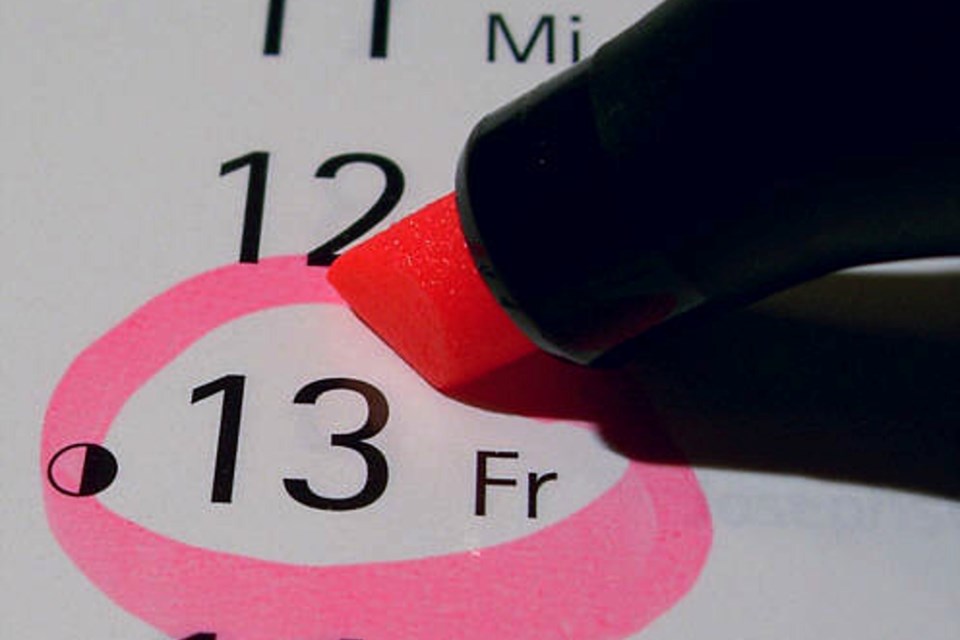Feeling paraskevidekatriaphobic today? Say that five times fast. Paraskevidekatriaphobia is the term for fearing Friday the 13th.
The exact reason Fridays, and in particular when the 13th day of the month falls on a Friday, are considered unlucky may be obscured by the mists of time, but there is no shortage of ideas on where the belief was born.
In an Aug. 12, 2004 article, National Geographic has it that 13's unlucky aura has more to do with its proximity to the number 12, than to anything else.
After all, the article points out, in numerology 12 is considered a perfect or complete number. There are 12 months in a year, 12 signs in the zodiac, 12 gods of Olympus, 12 tribes of Israel, 12 apostles of Jesus ... and the list goes on.
An article on the Mathworld forum has it that triskaidekaphobia, the fear of the number 13, might have a connection to Norse mythology ultimately as well, and the story of a dinner party.
It seems the god Odin asked 11 of his divine buddies to supper, only to have his party crashed by Loki, the god of evil and turmoil, thus giving a total of 13 people. When the warrior-turned-bouncer Balder attempted to toss the crasher, he was accidentally killed by a mistetoe-tipped arrow.
Although far from universal, 13's association with bad luck has been reflected in buildings that lack a 13th floor, airports that lack a 13th gate, and hotels without a 13th room.
As well, and even though there does not appear to be any real evidence to support the claim, any web search for the topic will invariably turn up this statistic: between $800-$900 million US is lost each Friday the 13th because people will alter travel or wedding plans, moving dates, and so on to avoid the perceived bad luck.
The phenomenon is mostly Western in origin, though other cultures have their own unlucky numbers. Japan for instance, according to japan-zone.com, has issues with the numbers four and nine.
Four is pronounced “shi” in Japanese, which also happens to be the pronunciation for the word “death”, while nine is “ku”, which can also mean “pain” or “suffering."



